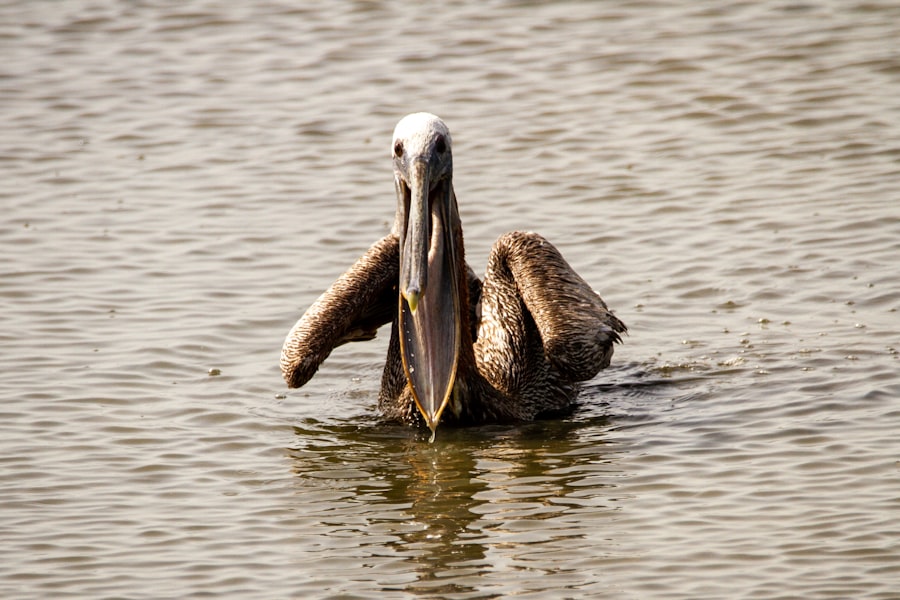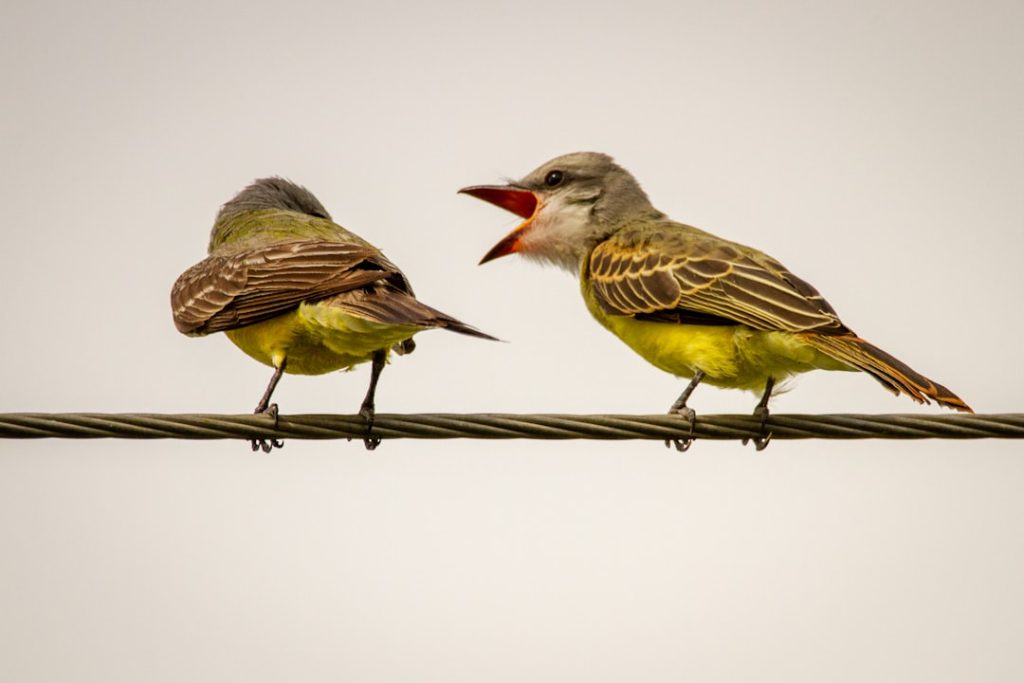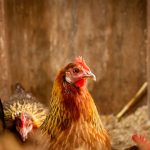Open-mouth breathing in chickens is an abnormal behavior that can indicate serious health issues or environmental stress. Unlike their typical behaviors such as pecking, scratching, and clucking, open-mouth breathing involves the chicken breathing with its beak wide open, which is not their natural respiratory pattern. Chickens naturally regulate their body temperature through panting in hot weather.
However, open-mouth breathing is more severe than normal panting and may signify respiratory distress, heat stress, or other health problems requiring immediate attention. This behavior is a critical sign for chicken owners to recognize, as it can indicate underlying health issues that need addressing. Prompt identification of open-mouth breathing can lead to timely intervention, potentially preventing more serious health complications in the flock.
Causes of open-mouth breathing in chickens may include respiratory infections, extreme heat, poor ventilation in coops, or other environmental stressors. Understanding these potential causes can help chicken owners maintain better flock health and create more suitable living conditions for their birds. Regular monitoring of chicken behavior is essential for early detection of open-mouth breathing and other signs of distress.
This vigilance allows for quick response to potential health issues, ensuring the overall well-being of the flock.
Table of Contents
Key Takeaways
- Chickens may open their mouths due to heat stress, respiratory issues, or as a sign of distress.
- Possible reasons for open mouth behavior include high temperatures, poor air quality, or respiratory infections.
- Open mouth behavior can lead to dehydration, respiratory infections, and reduced egg production in chickens.
- Preventive measures include providing proper ventilation, clean water, and a balanced diet for chickens.
- Seek professional advice from a veterinarian if open mouth behavior persists or is accompanied by other concerning symptoms.
Possible reasons for open mouth
Respiratory Illness
One common reason for open-mouth breathing in chickens is respiratory illness, such as a respiratory infection or disease. These conditions can cause difficulty breathing and lead to open-mouth breathing as the chicken tries to get more air.
Environmental Factors
Another possible reason for open-mouth breathing is heat stress, especially in hot and humid weather conditions. Chickens can struggle to regulate their body temperature in extreme heat, leading to panting and open-mouth breathing as they try to cool down. Additionally, exposure to dust or ammonia can irritate the respiratory system and lead to difficulty breathing.
Airway Obstruction
A blockage in the airway, such as a foreign object or mucus buildup, can also cause open-mouth breathing in chickens. This obstruction can prevent the chicken from breathing normally, leading to open-mouth breathing.
Taking Action
It’s crucial for chicken owners to consider these potential reasons for open-mouth breathing and take appropriate steps to address any underlying issues. By doing so, you can ensure the health and well-being of your flock and prevent more severe problems from developing.
Impact on chicken’s health

Open-mouth breathing can have a significant impact on a chicken’s health, as it is often a sign of underlying respiratory distress or illness. When a chicken exhibits open-mouth breathing, it indicates that the bird is struggling to breathe properly, which can lead to decreased oxygen intake and increased stress on the body. This can result in reduced energy levels, decreased appetite, and overall poor health in the affected chicken.
In severe cases, open-mouth breathing can even lead to respiratory failure and death if not addressed promptly. In addition to the immediate impact on the chicken’s health, open-mouth breathing can also have long-term consequences if left untreated. Respiratory illnesses can weaken the immune system and make chickens more susceptible to other diseases and infections.
Chronic heat stress can also have a negative impact on a chicken’s overall health and well-being. It’s important for chicken owners to recognize the potential impact of open-mouth breathing on their flock and take proactive measures to address any underlying issues in order to prevent further health complications.
Preventive measures
There are several preventive measures that chicken owners can take to help reduce the risk of open-mouth breathing in their flock. One important step is to provide a clean and well-ventilated living environment for the chickens, as poor air quality can contribute to respiratory issues. This includes regularly cleaning the coop, providing adequate ventilation, and minimizing dust and ammonia levels.
It’s also important to monitor the temperature and humidity levels in the coop, especially during hot weather, in order to prevent heat stress and reduce the risk of open-mouth breathing. In addition to environmental factors, it’s important for chicken owners to maintain a healthy diet for their flock in order to support overall respiratory health. This includes providing a balanced diet with access to fresh water at all times, as dehydration can exacerbate respiratory issues.
It’s also important to minimize stress in the flock by providing adequate space, enrichment activities, and minimizing exposure to potential predators or other sources of stress. By taking these preventive measures, chicken owners can help reduce the risk of open-mouth breathing and support the overall health and well-being of their flock.
Seeking professional advice
If a chicken is exhibiting open-mouth breathing, it’s important for chicken owners to seek professional advice from a veterinarian with experience in poultry health. A veterinarian can conduct a thorough examination of the affected chicken and provide an accurate diagnosis of any underlying health issues. This may involve conducting tests such as blood work or swabs of the respiratory tract in order to identify any potential infections or diseases.
Based on the diagnosis, the veterinarian can then recommend appropriate treatment options to address the underlying cause of open-mouth breathing and support the chicken’s recovery. In addition to seeking professional veterinary advice, it’s also important for chicken owners to stay informed about best practices for poultry health and seek guidance from reputable sources such as poultry associations or agricultural extension services. These resources can provide valuable information on preventive measures, treatment options, and overall management practices for maintaining a healthy flock.
By staying informed and seeking professional advice when needed, chicken owners can ensure that they are taking appropriate steps to address any potential health concerns in their flock.
Observing other symptoms

Recognizing Symptoms of Illness
In addition to open-mouth breathing, it’s essential for chicken owners to observe any other symptoms that may be present in an affected bird. This can provide valuable information for identifying potential underlying health issues and determining appropriate treatment options. Some common symptoms that may accompany open-mouth breathing in chickens include coughing, sneezing, nasal discharge, lethargy, decreased appetite, and changes in vocalization or behavior.
Monitoring Flock Behavior and Appearance
These symptoms can provide important clues about the potential cause of open-mouth breathing and help guide further diagnostic and treatment efforts. It’s also important for chicken owners to observe the overall behavior and appearance of their flock in order to identify any potential signs of illness or distress. This includes monitoring for changes in posture, movement, feather condition, and overall energy levels.
Proactive Health Management
By closely observing their flock on a regular basis, chicken owners can help identify any potential health concerns early on and take appropriate action to address them. This proactive approach can help prevent further complications and support the overall health and well-being of the flock.
In conclusion, open-mouth breathing in chickens is not a normal or healthy behavior and can indicate underlying respiratory distress or illness. It’s important for chicken owners to understand this behavior and be able to recognize potential causes in order to address any underlying health issues and ensure the well-being of their flock. By taking preventive measures, seeking professional advice when needed, and closely observing their flock for any potential symptoms, chicken owners can help reduce the risk of open-mouth breathing and support overall respiratory health in their flock.
Maintaining a clean living environment, providing a balanced diet, minimizing stress, and staying informed about best practices for poultry health are all important steps that can help prevent open-mouth breathing and support the overall health and well-being of chickens.
If you’re looking for more tips on keeping chickens, you might be interested in learning about large chicken coop ideas. Check out this article for some creative and practical ideas for creating a comfortable and spacious living space for your feathered friends.
FAQs
What does it mean when chickens keep opening their mouth?
Chickens may open their mouths as a way to cool down, especially in hot weather. This behavior is known as “panting” and helps them regulate their body temperature.
Are there other reasons why chickens might open their mouth?
Chickens may also open their mouths to vocalize, communicate with other chickens, or to express distress or discomfort. It’s important to observe their behavior and environment to determine the cause.
Should I be concerned if my chickens are constantly opening their mouth?
If your chickens are panting excessively, it could be a sign of heat stress or illness. It’s important to monitor their behavior and provide a comfortable environment with access to shade and fresh water. If the behavior persists or is accompanied by other symptoms, it’s best to consult a veterinarian.
How can I help my chickens if they are panting excessively?
To help chickens cope with heat stress, provide ample shade, good ventilation, and access to cool water. You can also consider using fans or misters to help lower the temperature in their coop or run. If the panting continues, it’s best to seek professional advice.
Meet Walter, the feathered-friend fanatic of Florida! Nestled in the sunshine state, Walter struts through life with his feathered companions, clucking his way to happiness. With a coop that’s fancier than a five-star hotel, he’s the Don Juan of the chicken world. When he’s not teaching his hens to do the cha-cha, you’ll find him in a heated debate with his prized rooster, Sir Clucks-a-Lot. Walter’s poultry passion is no yolk; he’s the sunny-side-up guy you never knew you needed in your flock of friends!







